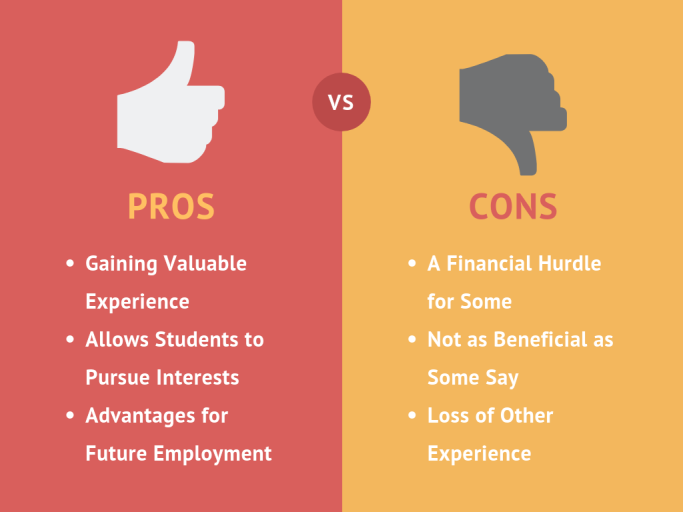The Fair Labor Standards Act requires “for-profit” employers to pay employees for their work. Interns and students, however, may not be “employees” under the FLSA—in which case the FLSA does not require compensation for their work. This is something most college students face when searching for an internship.
There is a great demand for students to have internship experience before graduating and being hired for a full-time position. Depending on your major, it is a requirement to have at least one internship in order to graduate from the degree program. For example, majors at Cabrini including biology, computer information systems, exercise science health promotion and educational leadership all require students to get an internship for credit prior to graduation.
“As a biology major, I had to get an internship and report to my adviser what I learned from the experience,” Estefany Perez, senior biology major, said. “I tried to find a paid internship, but there was none pertaining to my major so I was forced to take an unpaid one.”
According to a study done by The Viscardi Center, 46.5 percent of all internships obtained by college students are unpaid. This creates an issue for many students who support themselves financially. They do not have time to balance school, an internship and possibly a part-time job if their internship does not pay them.
“I am currently interning at the Elmwood Park Zoo nine hours a day on Friday and Saturdays,” Perez said. “Even though I’m working with animals, which is what I hope to do after college, it is really hard for me to save money because this internship is unpaid and the only day I can work my other job is Sunday.”
Other students view all experience as good experience and are willing to accept unpaid internships. According to a survey of 25 Cabrini students, 80 percent have had at least one internship and 70 percent of those internships were unpaid.
In summary, the FLSA states that in order for an internship to be unpaid:
- The student must have the option to receive academic credit and should provide training to the student as they would receive in an educational environment
- The work given to the intern should complement the work of full-time employees rather than displace them, while providing significant educational benefits to the intern
- The employer should accommodate the intern’s academic commitments and correspond with their academic calendar
As of Jan. 5, 2018, the Department of Labor announced that interns must be the “primary beneficiary” from the internship. The focus should be on the intern’s educational gain and not on the company’s financial gain. This standard is enforced so that companies cannot take advantage of student interns who need the experience.

On the plus side, internships allow students to explore different roles within their field of study whether they are paid or unpaid. Sometimes it takes an intern to experience a job hands-on to discover if that is the career they would like to pursue or not.
“I never thought I would be working as a Project Operations intern,” said senior computer information systems major, Danielle Jackson. “I took the position at SAP because it is a great company to intern at, but I ended up loving what I do and hope to further my career in this field.”
Internships, whether they be paid or unpaid, give valuable experience for students to learn from. Future employers love to see graduates who have previous experience outside of the classroom. In some cases, unpaid internships come with less commitment and shorter durations than some paid internships do. This is because according to the FLSA, interns are not viewed as employees if they are not being financially compensated.
The downside of unpaid internships are more obvious and often times more compelling than the benefits. There is no financial compensation in an unpaid internship, only educational benefits or academic credit. Many college students cannot afford to spend 10-20 hours a week working for free.
Some people feel that unpaid internships are not as beneficial to students after graduation. In a study conducted by National Association of Colleges and Employers, graduates who only participated in unpaid internships were often paid less than students who held paid positions.


